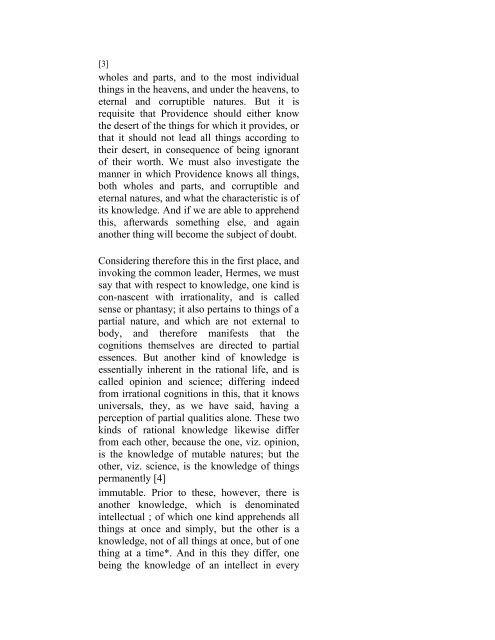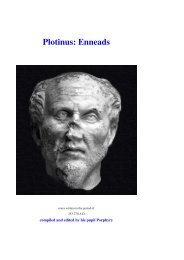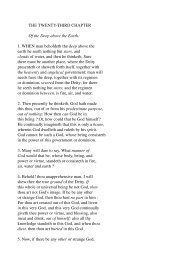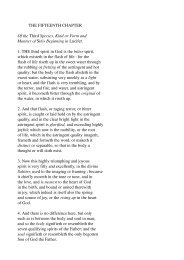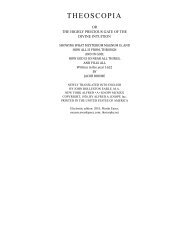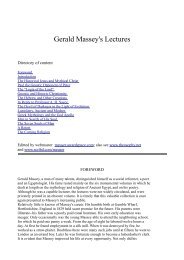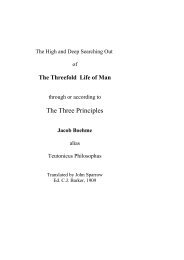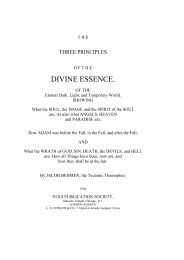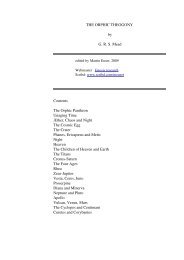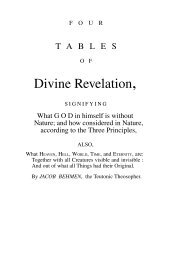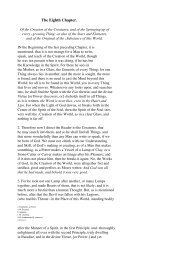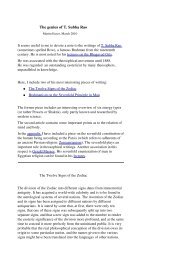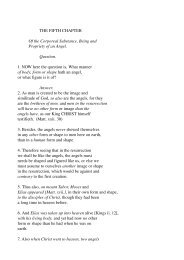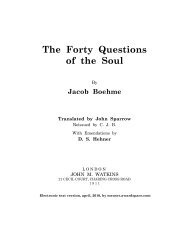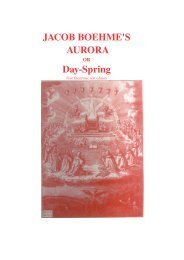PROCLUS, THE PLATONIC SUCCESSOR
PROCLUS, THE PLATONIC SUCCESSOR
PROCLUS, THE PLATONIC SUCCESSOR
You also want an ePaper? Increase the reach of your titles
YUMPU automatically turns print PDFs into web optimized ePapers that Google loves.
[3]<br />
wholes and parts, and to the most individual<br />
things in the heavens, and under the heavens, to<br />
eternal and corruptible natures. But it is<br />
requisite that Providence should either know<br />
the desert of the things for which it provides, or<br />
that it should not lead all things according to<br />
their desert, in consequence of being ignorant<br />
of their worth. We must also investigate the<br />
manner in which Providence knows all things,<br />
both wholes and parts, and corruptible and<br />
eternal natures, and what the characteristic is of<br />
its knowledge. And if we are able to apprehend<br />
this, afterwards something else, and again<br />
another thing will become the subject of doubt.<br />
Considering therefore this in the first place, and<br />
invoking the common leader, Hermes, we must<br />
say that with respect to knowledge, one kind is<br />
con-nascent with irrationality, and is called<br />
sense or phantasy; it also pertains to things of a<br />
partial nature, and which are not external to<br />
body, and therefore manifests that the<br />
cognitions themselves are directed to partial<br />
essences. But another kind of knowledge is<br />
essentially inherent in the rational life, and is<br />
called opinion and science; differing indeed<br />
from irrational cognitions in this, that it knows<br />
universals, they, as we have said, having a<br />
perception of partial qualities alone. These two<br />
kinds of rational knowledge likewise differ<br />
from each other, because the one, viz. opinion,<br />
is the knowledge of mutable natures; but the<br />
other, viz. science, is the knowledge of things<br />
permanently [4]<br />
immutable. Prior to these, however, there is<br />
another knowledge, which is denominated<br />
intellectual ; of which one kind apprehends all<br />
things at once and simply, but the other is a<br />
knowledge, not of all things at once, but of one<br />
thing at a time*. And in this they differ, one<br />
being the knowledge of an intellect in every


